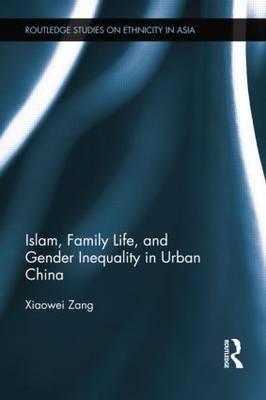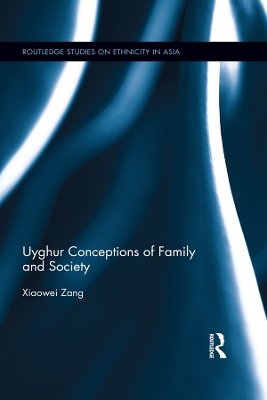Routledge Studies on Ethnicity in Asia
2 total works
This book studies the relationship between Islam, family processes, and gender inequality among Uyghur Muslims in Ürümchi, China. Empirically, it shows in quantitative terms the extent of gender inequalities among Uyghur Muslims in Ürümchi and tests whether the gender inequalities are a difference in kind or in degree. It examines five aspects of gender inequality: employment, income, household task accomplishment, home management, and spousal power. Theoretically, it investigates how Islamic affiliation and family life affect Uyghur women’s status.
Zang’s research involved rare and privileged access to a setting which is difficult for foreign scholars to study due to political restrictions. The data are drawn from fieldwork in Ürümchi between 2005 and 2008, which include a survey of 577 families, field observations, and 200 in-depth interviews with local Uyghurs. The book combines qualitative and quantitative data and methods to study gendered behavior and outcomes. The author’s study reinterprets family power and offers a more nuanced analysis of gender and domestic power in China and makes a pioneering effort to study spousal power, gender inequality in labor market outcomes, and gender inequality in household chores among members of ethnic minorities in China.
The book will be of interest to students and scholars of ethnic studies, Chinese studies, Asian anthropology and cultural sociology.
Contributing to existing literature on ethnic studies in China, this book is a study of minority subjective experiences in China, using Uyghur Muslims as a case study. By examining Uyghur conceptions of family and society, it investigates whether or not ethnic minorities are culturally capable of understanding and internalizing global norms on equality, community, citizenship, trust, justice and wellbeing. Specifically, it empirically examines Uyghur perceptions of issues such as spousal relations, parenting, community engagement and life satisfaction. Using data gathered from fieldwork in UErumchi, the author is able to show that there is in fact a high degree of Uyghur conformity to global norms on family and society. In the contemporary context of an Islamic revival and a recent resurgence of Uyghur nationalism, the evidence presented in this book is particularly important to the understanding of the Uyghur ethnic group and other minorities in the region.
Whilst making a valuable contribution to the fields of anthropology and sociology, this book will be useful for students of Chinese studies, Religious studies, Ethnic studies and Social Psychology.

